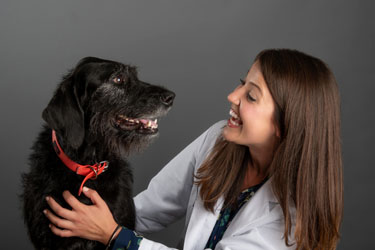Posted on

It's normal to wonder what's wrong if your dog limps, moves more slowly, or just doesn't move like they used to. Sometimes, a sore muscle or a short-term strain is all it is. But if the symptoms don't go away, there may be something else going on. In those cases, it might be time to seek the expertise of a veterinarian orthopedic specialist.
Many pet owners in Stratford, CT, aren’t quite sure when it’s appropriate to see a specialist rather than rely on their regular vet. This article will walk you through signs to watch for, what conditions may require orthopedic care, and how a specialist can help your dog feel better and regain stable mobility.
When Limping Is More Than Just a Strain
Dogs are tough and can often hide pain well. When you get home from a day at the park, a little limp might not seem like a big deal at first. But if your dog is still limping after two or three days, or if they have trouble getting up or going up or down stairs, or if they seem very stiff, there may be a bigger problem.
Pay attention to signs like:
-
Visible swelling near a joint
-
Clicking or popping sounds when they walk
-
Avoiding regular activities like walks or playtime
-
Personality changes, like irritability or restlessness
These signs could mean that your joints aren't stable, that you tore a ligament, or that you're starting to get arthritis. A primary vet can tell you a lot about simple illnesses, but a veterinarian orthopedic specialist for animals has access to more advanced diagnostic tools and can offer more targeted solutions for tough or long-lasting issues.
Injuries That May Require Surgical Treatment
Not all injuries lead to surgery—but when bones, joints, or ligaments are involved, more in-depth care is often needed. If your dog had a fall, was involved in an accident, or suddenly refuses to put weight on one of their legs, you should consider whether dog orthopedic surgery may be necessary.
Here are several orthopedic conditions that commonly require a surgical approach:
-
Fractures: Some broken bones heal with splints or casts, but others—especially those with multiple breaks or displacements—require pet bone surgery to properly realign and stabilize them using screws, plates, or pins.
-
Cruciate ligament tears: Much like an ACL tear in people, this knee injury is common in large or active dogs. Surgery is typically the best way to restore joint function and reduce pain.
-
Joint luxations: A joint that becomes dislocated—such as a hip or elbow—may need surgical correction to prevent further damage and restore mobility.
-
Hip or elbow dysplasia: These inherited conditions often start in younger dogs and worsen with age. When joint malformation causes pain or movement issues, a specialist may recommend corrective surgery.
In any of these cases, a general practice veterinarian might recognize the issue but refer you to an orthopedic surgeon in Stratford, CT, who can assess the injury with precision and recommend a treatment plan tailored specifically to your dog’s needs.
Aging and Joint Health in Senior Dogs
Orthopedic problems aren’t just linked to trauma. Aging is another major factor. As dogs get older, joint cartilage wears down, muscles weaken, and arthritis often sets in. While many older dogs manage well on medications and supplements, some require more than just conservative care.
Signs your senior dog may need a specialist include:
-
Difficulty standing up or lying down
-
Hesitation on smooth surfaces
-
Licking or chewing at painful joints
-
Muscle loss, especially in the hind legs
-
Limping that comes and goes throughout the day
If medications aren’t helping, a veterinarian orthopedic specialist can evaluate whether orthopedic surgery for pets could provide relief—such as removing bone fragments, stabilizing loose joints, or even replacing a severely arthritic joint. These decisions are always made carefully, considering the dog’s age, health status, and expected quality of life after surgery.
What Sets a Veterinary Orthopedic Specialist Apart?
While general veterinarians are trained to diagnose and treat many conditions, a veterinarian orthopedic specialist focuses entirely on musculoskeletal issues. These specialists undergo extensive post-doctoral training and are often board-certified in surgery.
They bring a more advanced level of care by offering:
-
Digital X-rays and advanced imaging (CT scans, MRI)
-
Minimally invasive procedures where appropriate
-
Surgical techniques tailored to a pet’s anatomy
-
Recovery plans that include physical therapy or rehab
Practices offering orthopedic surgery for pets in Stratford, CT, often have fully equipped surgical suites and support staff who specialize in post-operative care and rehabilitation.
Choosing a specialist doesn’t mean bypassing your general vet—it means building on their diagnosis to provide the highest level of care when an orthopedic issue is affecting your dog’s daily comfort and movement.
What to Do If You Think Your Dog Needs Help
If your dog is showing signs of an orthopedic issue, your first step should always be your primary veterinarian. They can perform an exam and determine whether a referral is necessary. In most cases, they’ll recommend seeing a veterinarian orthopedic specialist if the condition is complex or surgical care may be needed.
Acting sooner rather than later is important. Waiting too long can limit your dog’s treatment options or lead to more serious complications down the road. Whether it’s an injury, a suspected ligament tear, or joint pain that keeps coming back, specialists in Stratford, CT, are ready to help you make the best decision for your pet’s comfort and mobility.
